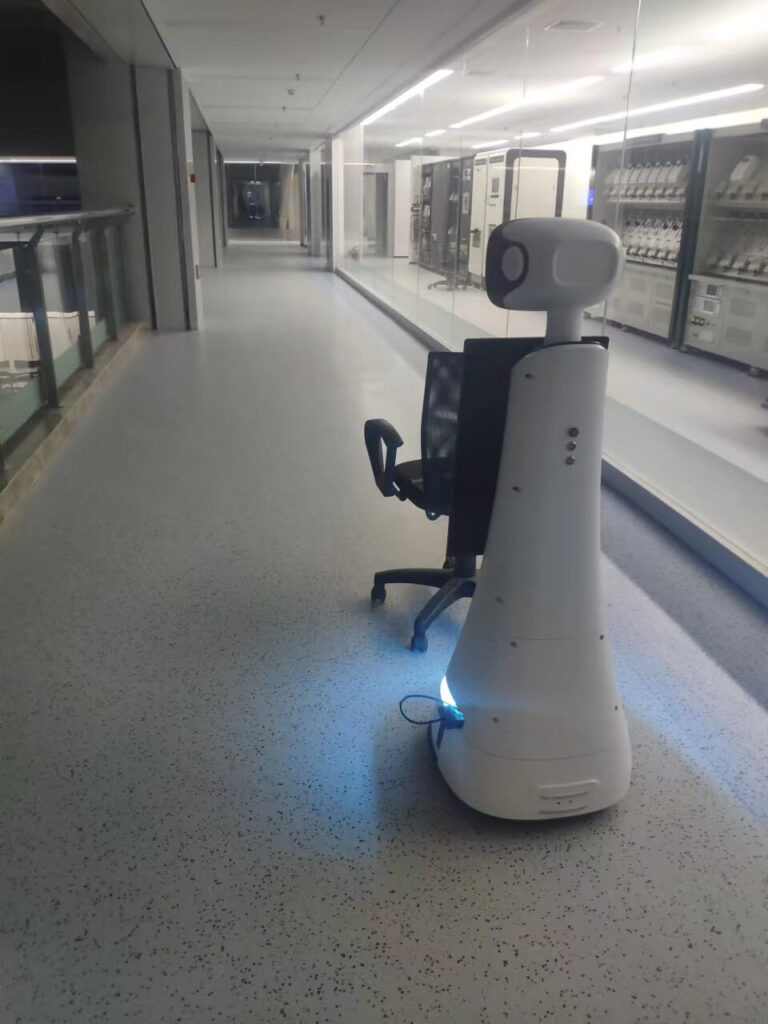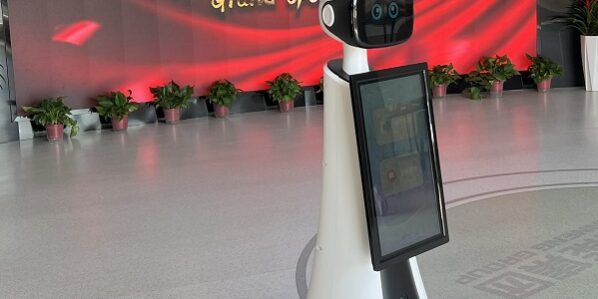As the hospitality sector advances, robots are becoming essential in revolutionizing guest experiences and operational efficiency. From automated check-ins to robotic concierge services, these innovative machines are shaping the future of hotels and elevating service standards. This article dives into eight exciting examples of how robots are utilized in the hotel industry, alongside some of the latest trends that are expanding robots’ role in hospitality.

1. Robotic Front Desk Check-In and Check-Out
With robotic kiosks, hotels offer a seamless check-in and check-out experience, reducing wait times and providing guests with a self-service option. These automated systems save time and reduce human error, all while ensuring guests’ data privacy. Some advanced robots, equipped with facial recognition, further personalize the process, creating a welcoming, high-tech first impression.
2. Concierge Robots: Interactive and Informative
Concierge robots are transforming guest interaction by offering real-time assistance and providing useful information about hotel services, local attractions, and weather updates. Some robots, like those powered by AI, even interpret and respond to multiple languages, making them a valuable tool for international guests and an interactive asset for hospitality staff.
3. Automated Luggage Handling: Convenience at its Best
Robotic luggage handlers streamline the process of managing baggage, eliminating the hassle of lifting and transporting bags to rooms. These robots enhance convenience and reduce workload for staff, allowing them to focus on more personal guest services. Luggage-handling robots have gained popularity in busy airports and hotel lobbies, where efficiency is key.
4. Robot Bartenders: Efficient Beverage Service
In hotel bars and restaurants, robot bartenders serve drinks quickly and consistently, eliminating wait times and adding an element of novelty. Advanced bartending robots are equipped to mix, pour, and serve a wide variety of beverages, offering guests a unique, tech-driven social experience. With the rise in demand for contactless service, robotic bartenders are a great solution for both efficiency and sanitation.
5. Cleaning Robots: Elevating Housekeeping Standards
Cleaning robots are equipped with sophisticated sensors to clean rooms and public areas autonomously. Capable of operating around the clock, these robots assist housekeeping by vacuuming floors, disinfecting surfaces, and even cleaning windows, ensuring a spotless environment for guests. With heightened sanitation standards, these robots are pivotal in maintaining cleanliness while relieving staff from repetitive tasks.
6. AI-Powered Chatbots: 24/7 Customer Support
AI chatbots act as virtual assistants that provide instant answers to guest inquiries, such as booking details, amenities, and room service orders. Available 24/7, these chatbots can manage multiple guest interactions simultaneously, making customer service more efficient and accessible. By handling common queries, AI chatbots allow hotel staff to focus on more complex guest needs, enhancing service quality.
7. Delivery Robots: Streamlining Room Service
Delivery robots have become a popular solution for room service, particularly in upscale and high-traffic hotels. Programmed to navigate elevators and corridors, they can deliver items such as towels, food, and toiletries directly to guest rooms. These robots improve service speed, maintain a high standard of hygiene, and add a touch of futuristic charm to guest interactions.
8. Chef Robots: Automating Meal Preparation
With chef robots, hotels can automate food preparation and deliver consistent, high-quality meals efficiently. Ideal for buffet setups and high-volume dining environments, these robots can handle tasks from frying to assembling dishes, reducing kitchen workload. Chef robots bring innovation to the culinary experience, appealing to guests curious about the latest tech trends.
The Role of Artificial Intelligence in Hotel Robots
AI technology has revolutionized the hotel industry by making robots “smarter” and more responsive. From voice recognition to personalized recommendations, AI enhances robots’ ability to perform complex tasks that require an understanding of human interaction. This advancement allows robots to handle not only operational roles but also enrich the guest experience by offering personalized services.
Benefits of Robots in the Hotel Industry
Efficiency and Cost Reduction: Robots can perform repetitive tasks faster and more accurately than humans, reducing the need for additional staff and lowering labor costs.
Enhanced Guest Experience: Robots provide unique, interactive experiences that intrigue guests and add value to their stay. With quick and consistent service, robots contribute to higher guest satisfaction.
Focus on Personalized Service: By managing routine tasks, robots free up human staff to focus on delivering personalized, high-touch services, making guests feel valued and appreciated.
Challenges and Considerations
While robots provide numerous advantages, hotels must address challenges such as the initial investment, ongoing maintenance, and ensuring a balance between automation and human interaction. Data security and privacy are also crucial, especially for robots that manage check-in and personal guest information.
The Future of Robotics in Hospitality
As hotels seek ways to optimize efficiency and meet evolving guest expectations, the integration of robots will continue to expand. The future of hospitality will likely see more collaborative robots (cobots) that work alongside humans, and AI-powered robots that can provide even more personalized and interactive services.






